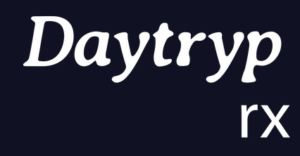Depression is categorized as a mood disorder that affects brain function. It can have emotional, psychological, and physical consequences. Depression can cause severe obstacles, and disruptions in daily life. It often involves altered moods that persist for weeks, months or even years. Depression is often treatment resistant, with between 29% and 46% of patients failing to respond to antidepressant medicines. The persistence of this condition considering the advances of modern medicine indicates a strong need for new approaches to treatment and healing.
Daytryp specializes in utilizing psychedelic therapies as highly effective and medically proven treatment options for individuals struggling with depression. Our approach offers hope, especially for those who have found limited success with traditional treatments.
With a compassionate and knowledgeable team, we guide each client on a transformative healing journey. Under the careful medical supervision of our experts, our mission is to help you unlock your potential by utilizing psychedelic therapies to address the root causes of depression. We provide the necessary resources and support to empower you in making lasting changes that promote emotional well-being and a brighter future.
Ketamine Infusion Therapy can provide rapid relief from depressive symptoms for a significant number of patients. In controlled, specific amounts, ketamine stimulates the creation and remodeling of neurons that have atrophied in depression. Approximately 70% of patients may experience a significant reduction in symptoms – many during their first infusion, which creates an excellent opportunity for rapid healing of emotional trauma with a therapist post infusion.
3,4-methylenedioxy-methamphetamine (MDMA) therapy is an upcoming, highly effective and innovative treatment approach for those suffering from post-traumatic stress disorder (PTSD) and other mental health conditions. It combines the psychoactive compound MDMA with guided psychological support, and has shown as much as a 75% success rate in patients suffering from PTSD, setting an unprecedented standard for treatment. MDMA therapy is not currently available, but expected to gain FDA approval later this year.
Submit an inquiry and our team will help you find the best treatment options for you.
 Daytryp Health has taken The North Star Ethics Pledge, a commitment to a set of principles for individuals working professionally in the field of psychedelics and mental health. North Star is a nonprofit working to shape the psychedelic industry around psychedelic wisdom.
Daytryp Health has taken The North Star Ethics Pledge, a commitment to a set of principles for individuals working professionally in the field of psychedelics and mental health. North Star is a nonprofit working to shape the psychedelic industry around psychedelic wisdom.
 The Modern Spirit Reciprocity Project provides scholarships for Native Americans to receive ketamine-assisted therapy. Daytryp Health supports the ancestral cultures of this land with a vision for increased access to psychedelic-assisted therapy.
The Modern Spirit Reciprocity Project provides scholarships for Native Americans to receive ketamine-assisted therapy. Daytryp Health supports the ancestral cultures of this land with a vision for increased access to psychedelic-assisted therapy.
 www.daytryprx.com America’s most popular weight loss drugs, peptides, sexual health, anti-aging and Ketamine Therapy medicines accessible and convenient—all at your fingertips & delivered to your door, FAST. A quick and easy tele-health appointment to determine appropriateness is necessary for all controlled substances. We make it fast, simple and easy for you to receive your favorite healing medicines, at home!
www.daytryprx.com America’s most popular weight loss drugs, peptides, sexual health, anti-aging and Ketamine Therapy medicines accessible and convenient—all at your fingertips & delivered to your door, FAST. A quick and easy tele-health appointment to determine appropriateness is necessary for all controlled substances. We make it fast, simple and easy for you to receive your favorite healing medicines, at home!